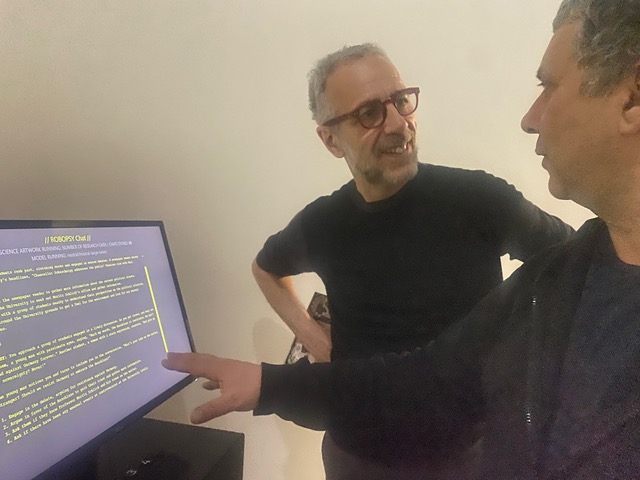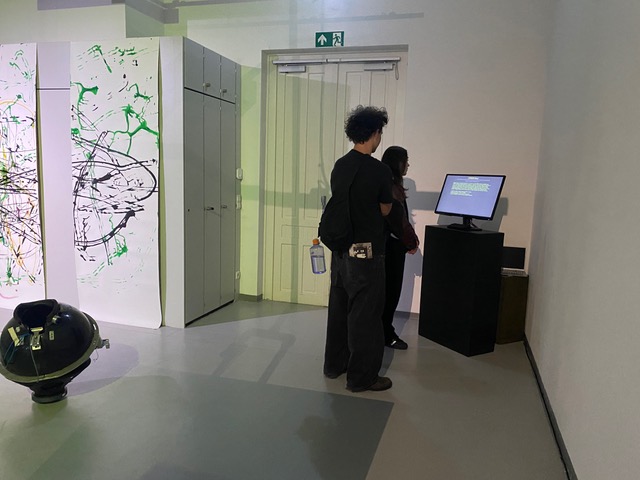

An Artistic Exploration of Collective Memory through Role-Playing with AI Language Models (ICT23-020) / WWTF Digital Humanities
Funded by Wiener Wissenschafts-, Forschungs- und Technologiefonds/ Vienna Science and Technology Fund
Keywords: AI Language Models; Artistic Research; Artistic Game; Digital Culture; Media Arts; Role-Playing; Collective Memory
Research Topic
In our artistic research project, we address the relationship of Large Language Models (LLM) with collective memory. How do LLMs create meanings and emotions and enact cultural trauma? What are its blind spots, limits, hallucinations? And how does this interaction with LLMs affect the role player’s memory?
Approach
To go beyond representing historical facts, participants in our experimental setting inter act with LLMs as “robopsychologists” in role play settings. Our first scenario evolves around the murder of the Austrian philosopher Moritz Schlick in 1936 that resulted in the disintegration of the Vienna Circle.
Research Questions
1. The central question –research topic? why is it important?
In our artistic research project, we address the relationship of Large Language Models (LLM) with collective memory. How do LLMs create meanings and emotions and enact cultural trauma? What are its blind spots, limits, hallucinations? And how does this interaction with LLMs affect the role player’s memory?
2. How do (did) we do it?
main methods of our research briefly and concisely:
To go beyond representing historical facts, participants in our experimental setting interact with LLMs as “robopsychologists” in role-play settings. Our first scenario evolves around the murder of the Austrian philosopher Moritz Schlick in 1936 that resulted in the disintegration of the Vienna Circle.
3. What do we plan to find out and how could this research impact our digital future?
We aim to develop scenarios to provide the framework for the role-playing sessions, which will be conducted in the form of artistic workshops open to the public. The method of role-playing allows the participants to explore how AI collects, curates, and interprets collective memory.
4. What has made this project a “Digital Humanism” project?
Our project provides a space for playful reflection of the cultural and symbolic backgrounds shaping our emotional and epistemic relationship to AI. It brings the critical investigation of LLMs to the public, transforming them into ludic citizen researchers and fostering insight into the “black box” of LLMs.